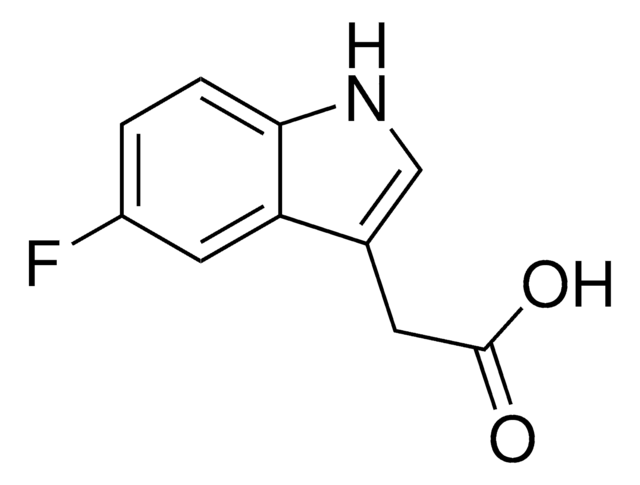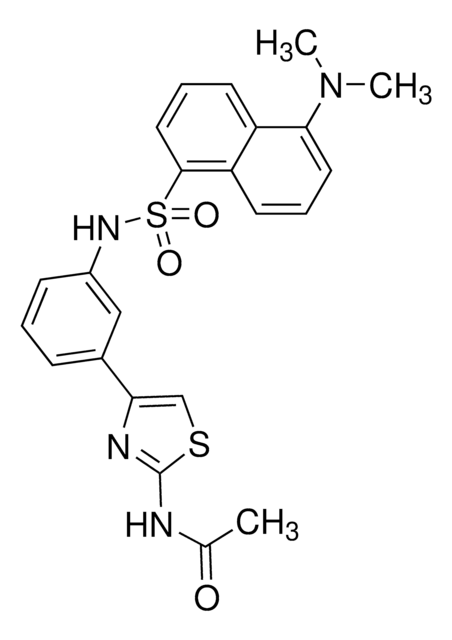G5048
Geranylgeranylacetone
Sinónimos:
6,10,14,18-Tetramethyl-5,9,13,17-nonadecatetraen-2-one, mixture of (5E,9E,13E) and (5Z,9E,13E) isomers, GGA, Selbex, Teprenone, UNII-S8S8451A4O
About This Item
Productos recomendados
assay
≥98% (HPLC)
Quality Level
form
oil
storage condition
protect from light
color
clear
solubility
DMSO: >5 mg/mL
storage temp.
−20°C
SMILES string
C\C(C)=C\CC\C(C)=C\CC\C(C)=C\CC\C(C)=C\CCC(C)=O
InChI
1S/C23H38O/c1-19(2)11-7-12-20(3)13-8-14-21(4)15-9-16-22(5)17-10-18-23(6)24/h11,13,15,17H,7-10,12,14,16,18H2,1-6H3/b20-13+,21-15+,22-17+
InChI key
HUCXKZBETONXFO-NJFMWZAGSA-N
Application
Biochem/physiol Actions
Storage Class
10 - Combustible liquids
wgk_germany
WGK 3
flash_point_f
Not applicable
flash_point_c
Not applicable
Certificados de análisis (COA)
Busque Certificados de análisis (COA) introduciendo el número de lote del producto. Los números de lote se encuentran en la etiqueta del producto después de las palabras «Lot» o «Batch»
¿Ya tiene este producto?
Encuentre la documentación para los productos que ha comprado recientemente en la Biblioteca de documentos.
Nuestro equipo de científicos tiene experiencia en todas las áreas de investigación: Ciencias de la vida, Ciencia de los materiales, Síntesis química, Cromatografía, Analítica y muchas otras.
Póngase en contacto con el Servicio técnico







